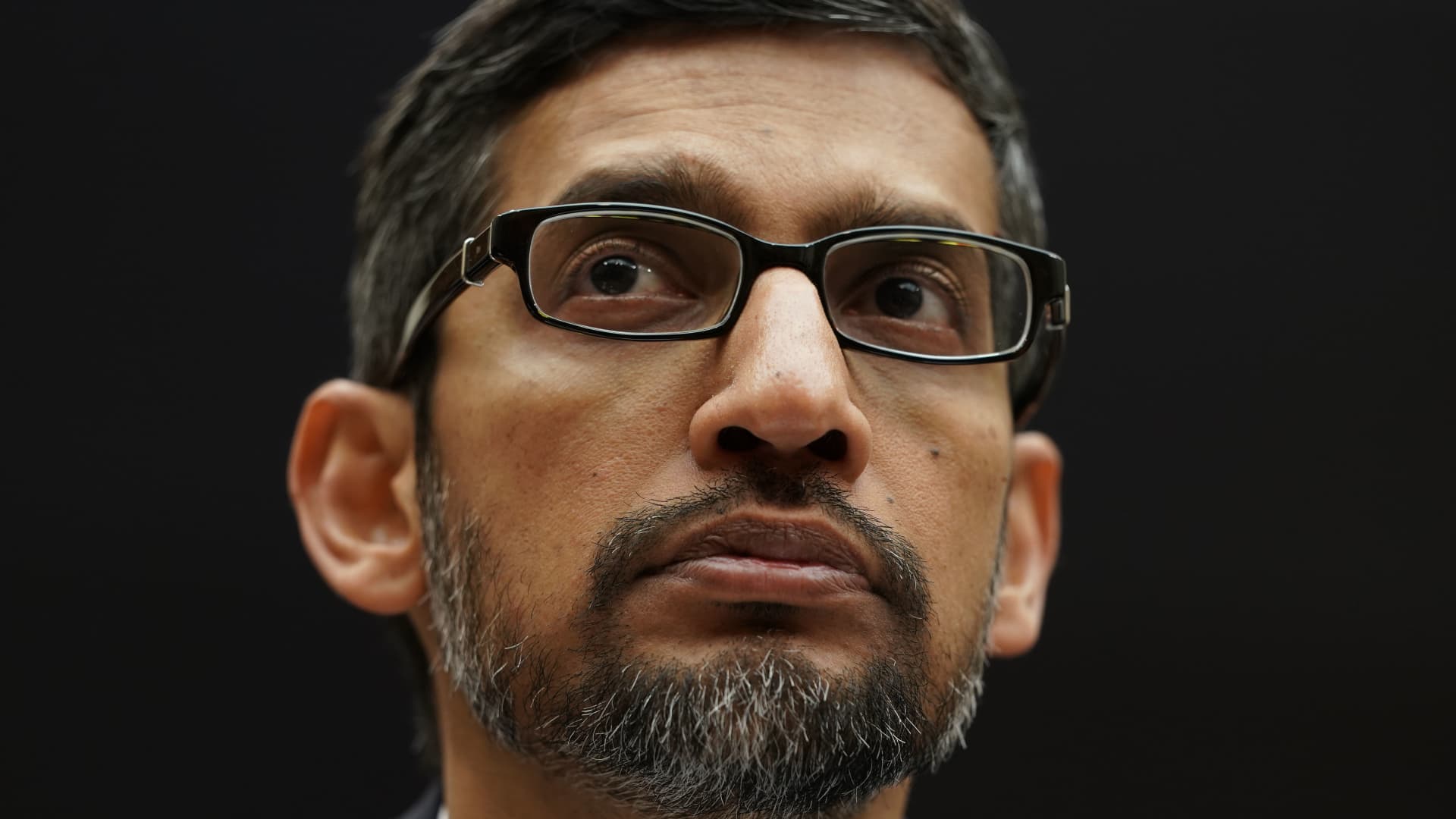Google CEO Sundar Pichai testifies before the House Judiciary Committee at the Rayburn House Office Building on December 11, 2018 in Washington, DC.
Alex Wong | Getty Images
A federal judge narrowed the case that states and the Department of Justice can make in the antitrust trial against Google beginning in September, according to a newly-released decision.
It’s a significant win for Google, though it will still need to face other claims brought by the enforcers when the trial begins September 12.
D.C. District Court Judge Amit Mehta granted, in part, Google’s motion for summary judgment in the cases brought by the Department of Justice and a coalition of state attorneys general. The cases both alleged that Google illegally maintained a monopoly by cutting off rivals from search distribution channels.
While the judge mostly allowed that shared argument from the enforcers to move forward, he notably threw out the states’ claim that Google unfairly hurt search rivals like Yelp and Tripadvisor through the design of search results pages that lowered their visibility.
Mehta also narrowed the DOJ’s case to remove arguments over certain agreements Google made for its Android mobile operating system, Google Assistant and internet of things devices. He also removed arguments pertaining to how Google managed its Android Open Source Project. After Google filed the motion on summary judgement against those portions of the suit, the DOJ chose not to offer an opposition on those particular points, the filing notes.
Mehta denied Google’s motion for summary judgement on both enforcers’ claims that Google used exclusive dealing arrangements to violate anti-monopoly law, writing, “There remain genuine disputes of material fact that warrant a trial.”
As for the states’ claims about Google’s alleged anticompetitive behavior around its search ad tool SA360, Mehta wrote that there also remains a “genuine dispute of material fact with regard to the anticompetitive effect of Google’s…
Read the full article here

Leave a Reply